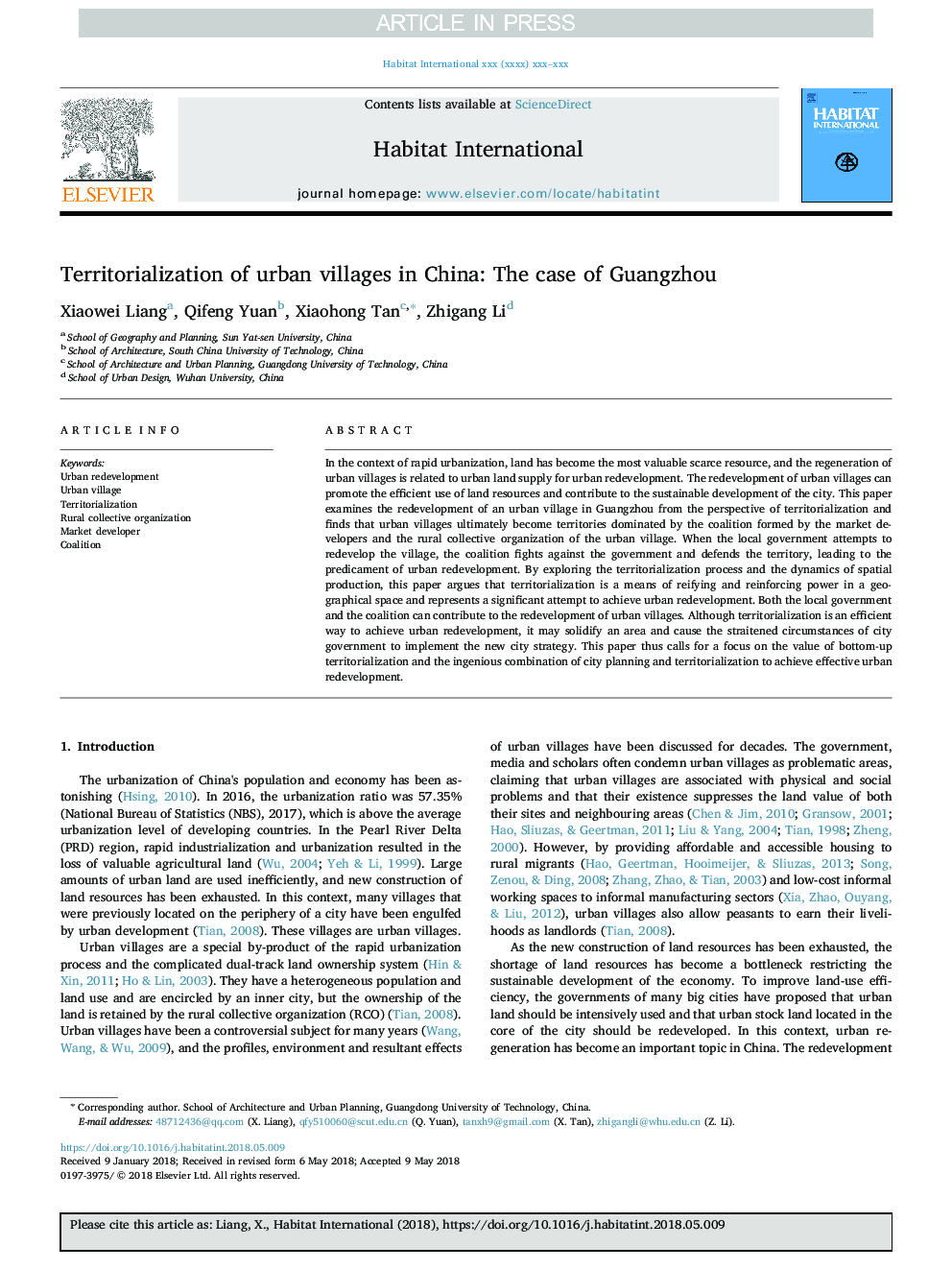| Article ID | Journal | Published Year | Pages | File Type |
|---|---|---|---|---|
| 7454927 | Habitat International | 2018 | 10 Pages |
Abstract
In the context of rapid urbanization, land has become the most valuable scarce resource, and the regeneration of urban villages is related to urban land supply for urban redevelopment. The redevelopment of urban villages can promote the efficient use of land resources and contribute to the sustainable development of the city. This paper examines the redevelopment of an urban village in Guangzhou from the perspective of territorialization and finds that urban villages ultimately become territories dominated by the coalition formed by the market developers and the rural collective organization of the urban village. When the local government attempts to redevelop the village, the coalition fights against the government and defends the territory, leading to the predicament of urban redevelopment. By exploring the territorialization process and the dynamics of spatial production, this paper argues that territorialization is a means of reifying and reinforcing power in a geographical space and represents a significant attempt to achieve urban redevelopment. Both the local government and the coalition can contribute to the redevelopment of urban villages. Although territorialization is an efficient way to achieve urban redevelopment, it may solidify an area and cause the straitened circumstances of city government to implement the new city strategy. This paper thus calls for a focus on the value of bottom-up territorialization and the ingenious combination of city planning and territorialization to achieve effective urban redevelopment.
Related Topics
Social Sciences and Humanities
Social Sciences
Development
Authors
Xiaowei Liang, Qifeng Yuan, Xiaohong Tan, Zhigang Li,
